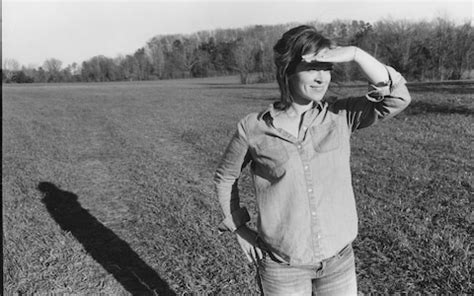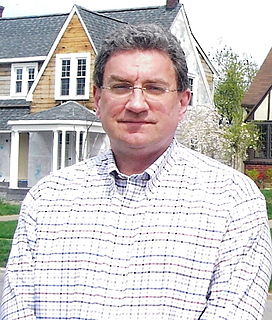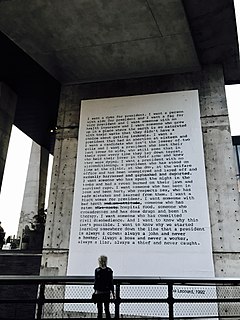A Quote by Joseph Addison
The memory is perpetually looking back when we have nothing present to entertain us. It is like those repositories in animals that are filled with food, on which they may ruminate when their present pastures fail.
Related Quotes
Memory is therefore, neither Perception nor Conception, but a state or affection of one of these, conditioned by lapse of time. As already observed, there is no such thing as memory of the present while present, for the present is object only of perception, and the future, of expectation, but the object of memory is the past. All memory, therefore, implies a time elapsed; consequently only those animals which perceive time remember, and the organ whereby they perceive time is also that whereby they remember.
Memory is corrupted and ruined by a crowd of memories. If I am going to have a true memory, there are a thousand things that must first be forgotten. Memory is not fully itself when it reaches only into the past. A memory that is not alive to the present does not remember the here and now, does not remember its true identity, is not memory at all. He who remembers nothing but facts and past events, and is never brought back into the present, is a victim of amnesia.
My concern today is with the painting of manners of the present. The past is interesting not only by reason of the beauty which could be distilled from it by those artists for whom it was the present, but also precisely because it is the past, for its historical value. It is the same with the present. The pleasure which we derive from the representation of the present is due not only to the beauty with which it can be invested, but also to its essential quality of being present
We do not rest satisfied with the present.... So imprudent we are that we wander in the times which are not ours and do not thinkof the only one which belongs to us; and so idle are we that we dream of those times which are no more and thoughtlessly overlook that which alone exists. For the present is generally painful to us.
We are living in a culture entirely hypnotized by the illusion of time, in which the so-called present moment is felt as nothing but an infinitesimal hairline between a causative past and an absorbingly important future. We have no present. Our consciousness is almost completely preoccupied with memory and expectation. We do not realize that there never was, is, nor will be any other experience than present experience. We are therefore out of touch with reality.
One of the paradoxes that makes the internet such a suggestive place is that, on the one hand, we perceive it as perpetually in motion and changing, and, on the other hand, it has this god-like immortality to it: It seems like it won't die and is not subject to decay, and that everything can be unwound, unlike present-tense experience, where you can't archive the present moment, you can't go back and read it over again. That's the fundamental hallmark of the internet.
A God who draws near out of love, the Holy Father continued, walks with His people, and this walk comes to an unimaginable point. We could never have imagined that the same Lord would become one of us and walk with us, be present with us, present in His Church, present in the Eucharist, present in His Word, present in the poor, He is present, walking with us. And this is closeness: the shepherd close to his flock, close to his sheep, whom he knows, one by one.
Living in the present moment requires discretion toward memory. Without memory we'd have amnesia. What good would there be in that? Offer discretion and discernment for our past with a broad spectrum of forgiveness. As for our present moment, delight. And dedication to remain fully present to all the possibility.
I think the primary gift of the animal is offered to writer and non-writer alike; they teach us about love, or attunement, which is love in action. A lot of people have closer relationships with animals than they do with other humans, because real intimacy requires both parties to consistently lean in, and animals are so good at this. They remain consistently, amazingly attuned to us, even when we fail them, and so we stay present, because we sense we're safe.
Such is the moral construction of the world that no national crime passes unpunished in the long run... Were present oppressors to reflect on the same truth, they would spare to their own countries the penalties on their present wrongs which will be inflicted on them in future times. The seeds of hatred and revenge which they sow with a large hand will not fail to produce their fruits in time. Like their brother robbers on the highway, they suppose the escape of the moment a final escape and deem infamy and future risk countervailed by present gain.





































